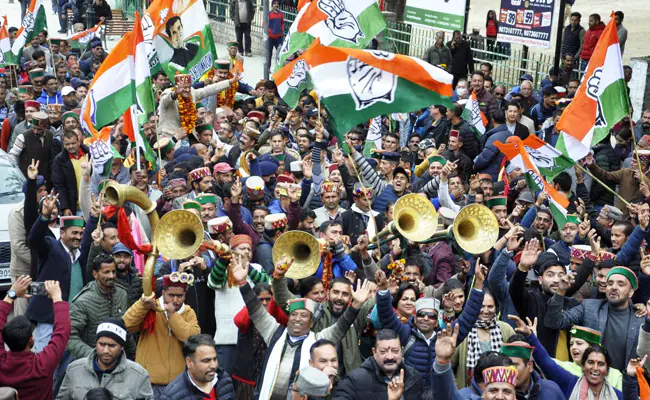3 Factors In Congress’s Himachal Win, 2 Reasons For BJP’s Loss
New Delhi: Congress has managed to return to power in Himachal Pradesh, though the vote-share difference is not as large as it would have targeted. The BJP fell short despite a resource-driven fight to buck the trend in the hill state.
- The R-word: BJP had rebel candidates on 21 of the 68 seats. They won just two — another Independent who won was a Congress rebel — but the votes they got would have ideally gone to the BJP. In a state where each constituency has less than 1 lakh total votes on average, minor swings can mean a lot.
- I, Me, Myself: Himachal, despite being the home state of BJP national president JP Nadda, saw three factions at play. One was led by Mr Nadda, another by Union Minister Anurag Thakur, and the third by Chief Minister Jairam Thakur. The party declared Jairam Thakur as its face in the state, but Anurag Thakur was seen as a potential challenger and even shed a tear publicly “in praise of the hard work” of his father, former chief minister Prem Kumar Dhumal, who was not given the ticket, though Mr Dhumal and the party insisted he had chosen to retire. Mr Dhumal was seen as a potential wingman if the BJP needed to woo the rebels.
- Another R-word: There’s something about Himachal — a tranquil state where life flows slow — and a desperate yearning for change every election. That’s the “rivaaj”, or tradition, which was part of every election conversation and slogan. And it proved the primary factor why the Congress got a chance. Politicians and pundits point towards high levels of education and political savvy being a part of life in the hill state.
- ‘OPS’ promise: The promise of restarting the old pension scheme spurred the Congress campaign as a large chunk of the population is in government jobs. The BJP made a “double engine” pitch, implying that having the same party in power at the Centre and in the state guarantees development on all fronts. But the Congress insisted that local issues matter most.
- Lowkey, local: Different from the BJP’s push led by PM Narendra Modi, the Congress ran a campaign that banked on local leaders managing their areas. Rahul Gandhi stuck to his Bharat Jodo Yatra, only sending out an appeal on voting day, though Priyanka Gandhi and Mallikarjun Kharge held rallies. It had factionalism, but the leadership sent a clear message: For anyone to be chief minister, the party has to win, and that happens only unitedly. Factions of state unit chief Pratibha Singh and senior leaders Mukesh Agnihotri and Sukhvinder Sukhu managed to hold their own, and it added up.

